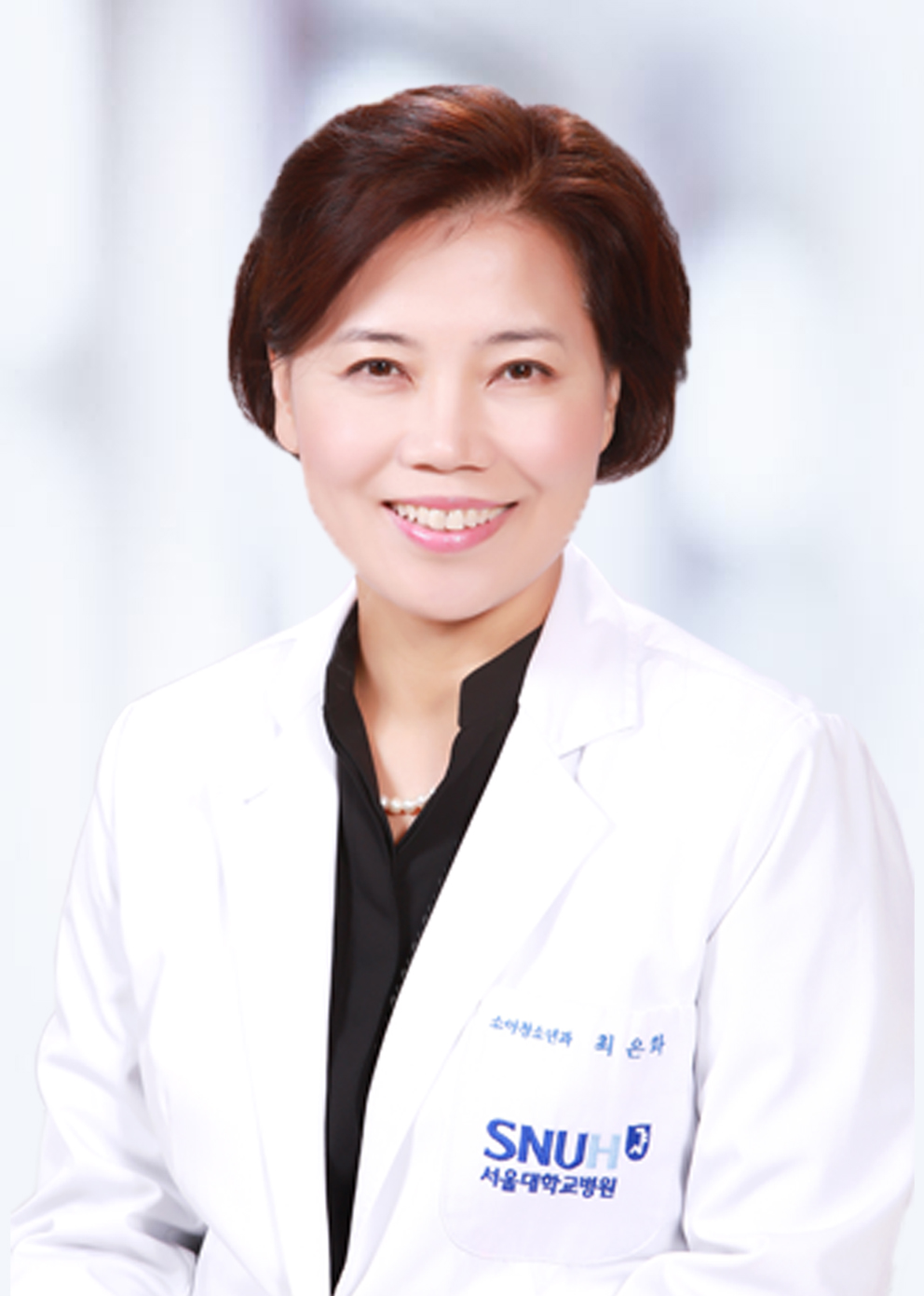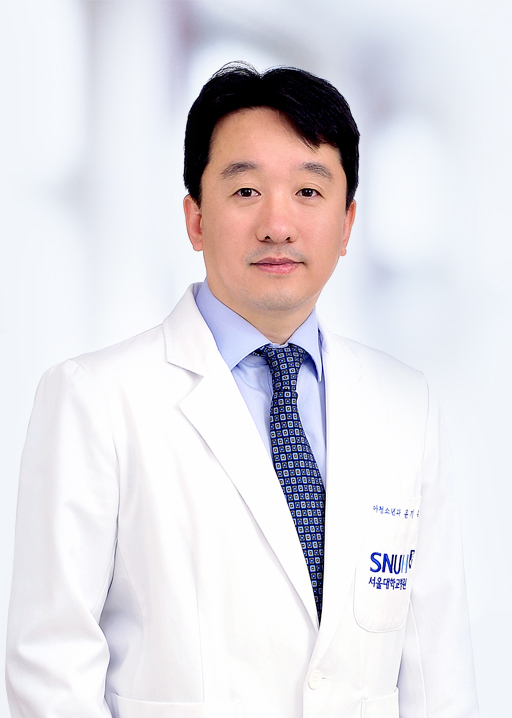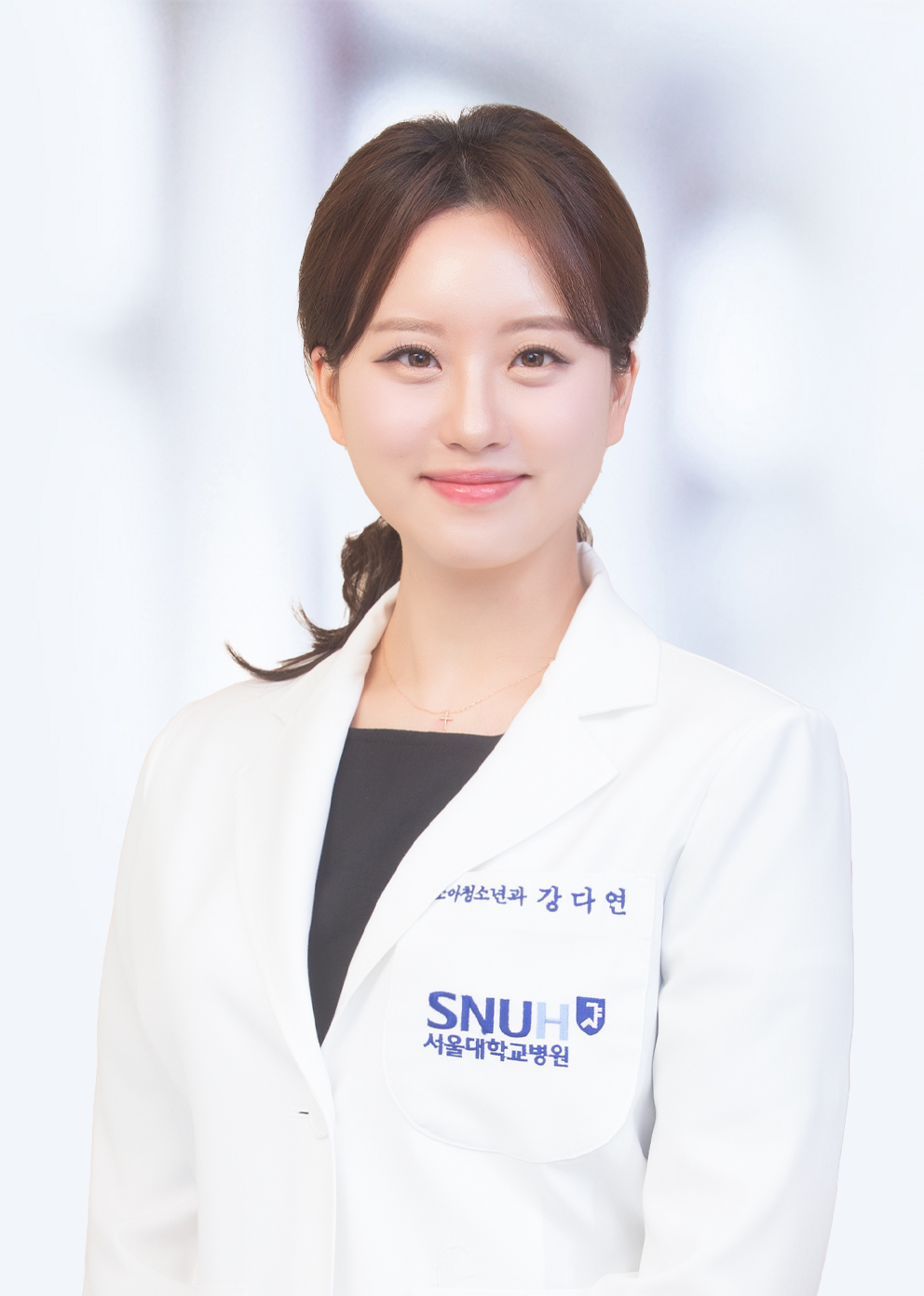
- DepartmentPediatric Infectious Diseases
- Specialty Pneumonia, Bronchiolitis, Meningitis, Lymphadenitis, Acute sinusitis, Acute otitis media, Traveler infection, Sepsis, Hand, foot and mouth disease, scarlet fever, Tuberculosis, Fever (high temperature), rash, Vaccination (general, chemotherapy/transplant patients), Kawasaki

- DepartmentPediatric Infectious Diseases
- Specialty Pneumonia, Bronchiolitis, Lymphadenitis, Acute otitis media, Meningitis, Sepsis, Tuberculosis, Fever (high temperature), rash, Vaccination (general, chemotherapy/transplant patients)
1. Academic Background and Career I graduated from Chung-Ang University College of Medicine in 2002 and completed my residency in Pediatrics at Chung-Ang University Hospital. During my residency, I pursued a master’s degree and conducted research on the clinical significance of matrix metalloproteinase 9 in Kawasaki disease. Following my residency, I trained as a fellow in pediatric infectious diseases at Seoul National University Children’s Hospital (SNUCH) under the mentorship of Professor Hoan Jong Lee. In 2013, I obtained my Ph.D. with a dissertation on the genetic diversity of major virulence proteins of Streptococcus pneumoniae isolated from invasive infection in children. My academic career began as a Clinical Assistant Professor at Chung-Ang University Hospital in 2012. In 2015, I transitioned to SNUCH as a faculty member in the Department of Pediatrics (Division of Infectious Diseases) and became a full-time Associate Professor at Seoul National University (SNU) College of Medicine in 2018. To broaden my international experience, I spent a year from October 2018 to August 2020 as a Visiting Research Scientist at the Division of Infectious Diseases at Nationwide Children’s Hospital in Ohio, United States. 2. Research My primary research interest lies in molecular epidemiology and virulence factors of major pathogens in children. During my fellowship training, I worked on developing pneumococcal typing by multiplex PCR and investigating the genetic diversity and evolutionary relatedness of pneumococcal serotypes 6A, 6B, 6C, and 6D. This early experience led me to actively participate in academic research on the genetics of pathogens. My research has extended to investigating the genetic diversity and molecular epidemiology of pneumococcal serotypes, particularly in relation to vaccine impact. I have conducted studies on the capsular polysaccharide gene diversity of pneumococcal serogroups, genetic variations in pneumococcal surface proteins, and serotype replacement following the introduction of pneumococcal conjugate vaccines. Then, my research topic has extended to the genetics of other major pediatric pathogens. I have studied the virulence factors of uropathogenic Escherichia coli, as well as the genetic characteristics of multidrug-resistant E. coli strains such as ST131. My work has also included long-term surveillance studies of respiratory viruses, such as respiratory syncytial virus (RSV) and human metapneumovirus (hMPV), focusing on genetic variability, epidemiological trends, and the evolution of viral genotypes over time. The COVID-19 pandemic necessitated urgent research to guide public health policies, particularly in pediatric populations. My research during this time focused on several critical aspects, including the clinical burden of COVID-19 in children, vaccine safety and efficacy, therapeutic interventions, and the long-term impact of infection. Early in the pandemic, I investigated the clinical features and outcomes of pediatric COVID-19 cases, emphasizing the need for evidence-based treatment strategies tailored to children. My research on COVID-19 therapeutics has contributed to reviewing and defining treatment guidelines for children and adolescents. Recognizing the importance of individualized care, I also investigated the management of COVID-19 in high-risk pediatric populations, including neonates born to infected mothers and children with chronic neurological conditions who experienced unexpected post-recovery deterioration. Through these studies, I have contributed to shaping clinical guidelines and public health strategies for pediatric COVID-19, ensuring that children receive optimal care during and beyond the pandemic. During my visit as a Research Scientist at Nationwide Children's Hospital, I had the opportunity to gain in-depth experience in two major research areas. The first was human airway epithelial cell culture, which serves as a highly useful experimental model for understanding the pathogenesis of respiratory infections. This model is also widely utilized to study novel respiratory pathogens. I have been working on establishing the same model in my current laboratory to conduct related research. The second research area involved participating in a prospective multicenter cohort study aimed at identifying the distribution of causative pathogens of community-acquired pneumonia (CAP) in children. My role in this study included data collection, organization, analysis, and manuscript preparation. Through this experience, I recognized the urgent need for similar research in Korea and the importance of such studies being conducted by pediatric infectious disease specialists. As a result, over the years, I have actively led related research projects with the support of the Korean Society of Pediatric Infectious Diseases (KSPID) and the Korea Disease Control and Prevention Agency (KDCA). Looking ahead, I plan to continue contributing to the field of pediatric infectious diseases by expanding my research on the molecular epidemiology and genetic diversity of key bacterial and viral pathogens, including S. pneumoniae, Mycoplasma pneumoniae, RSV, and SARS-CoV-2, to assess their evolving impact on pediatric health. Additionally, I plan to strengthen prospective multicenter cohort studies on pediatric respiratory infections to better understand pathogen distribution and disease burden. By integrating experimental models such as human airway epithelial cell cultures, I seek to advance research on respiratory infection pathogenesis and novel therapeutic approaches. In parallel, I aim to establish a continuous surveillance system for invasive bacterial and viral infections in children, ensuring long-term monitoring of pathogen trends and informing evidence-based public health policies. 3. External Activities I have delivered multiple invited lectures at international conferences, sharing knowledge with researchers from around the world in related fields. Additionally, I played a key role as a main researcher in a prospective multicenter study conducted in the United States, leading the research process and serving as the first author of the resulting publication. Based on the data collected from this study, international collaborative research papers continue to be published, and I am actively maintaining connections with the research team to plan future collaborative studies. 4. Education and other stuff As an active member of the academic community, I have taken on leadership roles in various professional societies. I currently serve as the Director of Academic Affairs for the KSPID and the Korean Vaccine Society. My expertise in pediatric infectious diseases has also led to my participation in national policy-making. I am a member of the Committee of Infectious Diseases at the Korean Society of Pediatrics (KSP), where I contribute to the development of vaccine guidelines for Korean children. Additionally, I serve as an advisory member for vaccine policies at the KDCA, ensuring that my research findings help shape evidence-based public health recommendations. Beyond research and policy work, I have a strong commitment to medical education. In 2018, I served as a faculty advisor for medical school students at SNU. In 2024, I served as the head professor for the graduate course “Pediatric Infectious Diseases” at SNU, where I guided students in understanding key concepts in infectious diseases and immunization. Throughout my career, I have received multiple awards recognizing my contributions to research and academia. In 2012, I was honored with the Travel Grant Award at the 8th International Symposium on Pneumococcus and Pneumococcal diseases and the Young Investigator Award at the 8th Congress of Asian Society for Pediatric Research. In 2012, 2013, and 2016, I received several Research Award from KSPID and KSP. More recently, in 2022, I was recognized for my contributions to infection control with an award from the Minister of Health and Welfare. Through my work in research, policy, and education, I remain dedicated to advancing the field of pediatric infectious diseases. I aspire to continue making meaningful contributions to academia and public health, helping to improve the prevention and treatment of infectious diseases in children.

- DepartmentPediatric Infectious Diseases
- Specialty Pneumonia, Bronchiolitis, Lymphadenitis, Fever (high temperature), Pediatric infectious disease, Vaccination